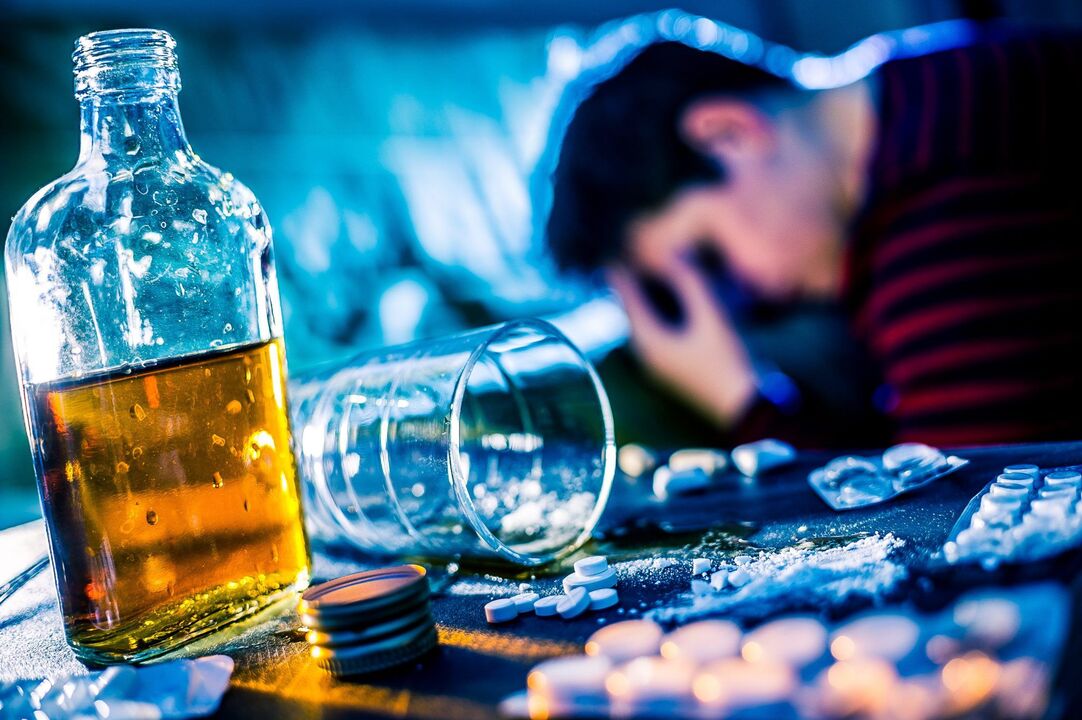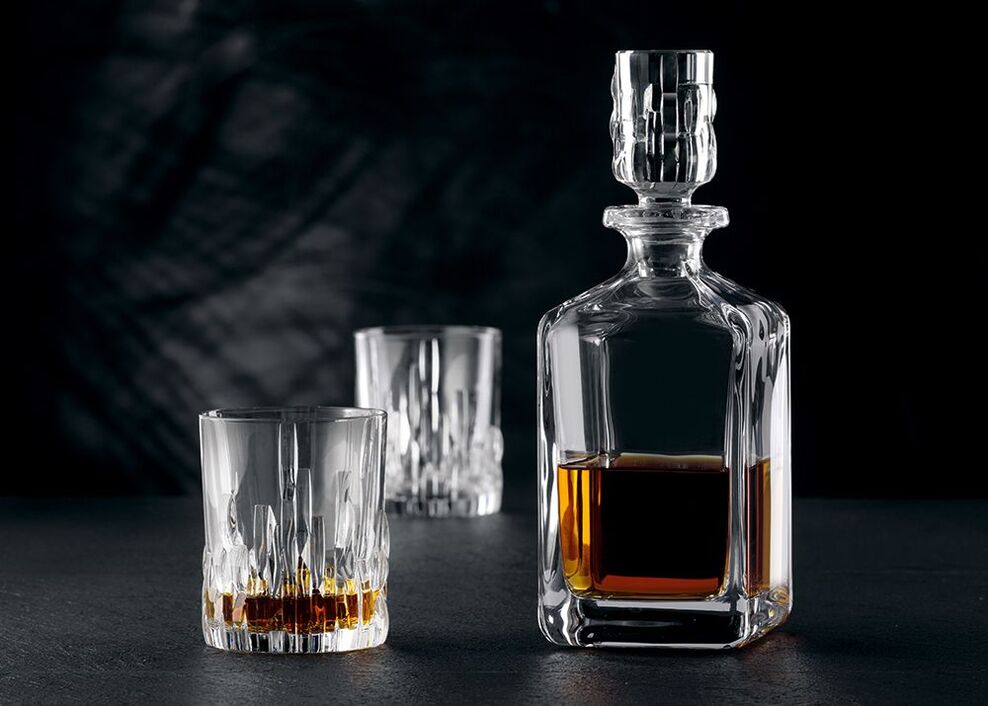Almost no party is complete without alcohol. But everything should be in moderation, a small dose of alcoholic beverages will be beneficial and will lift your spirits. Some types of alcohol are safer than others. The main thing is that they do not contain methyl alcohol, since this leads to disastrous consequences.
Classification of the dangers of alcohol.
Any food product that contains at least 1. 5% ethyl alcohol is alcoholic. Ethanolic beverages are systematized by C₂H₅OH level, type of raw material used, type of production and aging criteria.
Due to the presence of alcohol:
- low content: beer, wine;
- high: vodka, sugarcane rum, gin, grain whiskey, grape brandy and more.
All drinks are made from various types of raw materials.
The first can be divided into the following
- grape-based: cognac, wine, Italian grappa;
- cereals – whiskey, brewing groups, vodka;
- fruits and berries – apple Calvados, liqueur, liqueur;
- herbal: balsam, rum, Mexican tequila, absinthe.
Each alcoholic beverage product has its own ethanol content.
The presence of the latter can be divided as follows:
- high – from 67 to 96% of the container volume;
- normal – from 31 to 66;
- average – from 9 to 30;
- low: from 1. 5 to 9.
The latest line includes everyone's favorite beer, domestic low-alcohol products, kvass, palm toddy and shandy.
Beverages with a medium ethanol content are wine, mulled wine, punch and mead.
The top step is occupied by vodka, armagnac, tequila, rum, absinthe and other intoxicating liquids. Drinking ethyl alcohol occupies a leading position. The alcohol volume reaches 95%.
It is believed that the main harm to health is caused by the degree of the drink, however, the consumption of weak alcohol-containing products can cause no less harm than strong ones.
Characteristics of the least harmful alcohol
Judgments regarding intoxicating liquids vary considerably. Some nutritionists claim that drinking beverages is beneficial, while others say that it is harmful to health.
The criteria to determine the least harmful alcohol are the following:
- The degree of its quality.
- Amount of ethanol.
- Flavoring additions.
- Performance.
According to medical experts, vodka is considered less harmful to health. Of course, this condition is met with minimal use.
This conclusion is due to the following factors:
- low amount of calories contained;
- absence of harmful carbonyl group;
- the simplicity of an alcoholic liquid: water with alcohol.
A consumed high-quality product almost never causes a hangover. But this does not mean that you can drink vodka without measure. To avoid poisoning, the snack should consist of fatty foods.
However, experts consider real grape wines to be the least safe alcohol for the liver. The fruits of the bush do not present harmful residues. If you do not separate the skin from the berries, you get a variety of red wine, recognized as the healthiest.
This is due to the fact that the vitamins contained in the peel pass into the liquid alcoholic medium, saturating the body with microelements and organic nitrogenous compounds.

Antioxidants improve the functioning of the circulatory system and rejuvenate cells. Wine is successfully used to extract an extract, which is used to make injections and various cosmetics.
Negative effects on the human body.

The negative impact of alcoholic beverages is manifested in the following:
Organs exposed to alcohol and diseases that can occur under the influence of alcoholic beverages.
- Intoxication disrupts the flow of oxygen to the brain, causing brain cells to die. Encephalopathy develops, the changes are irreversible.
- The cardiovascular system is affected. Pathologies develop: ischemic and hypertension, cardiomyopathy. In some people, alcohol addiction causes the heart to enlarge.
- The respiratory rate increases, tuberculosis and chronic bronchitis develop.
- The functions of the digestive system are altered because the mucous membrane takes on the effect of the poison. Patients are diagnosed with gastritis and peptic ulcer. Alcohol destroys the liver, causes cirrhosis and alcoholic hepatosis.
- Alterations occur in excretory function. Alcohol is harmful to the kidneys, because under the influence of alcohol their epithelium is destroyed.
- The endocrine glands are affected. Almost half of people who suffer from alcoholism have decreased sexual function. Against this background, neuroses, depression and other disorders of the central nervous system arise. In women, the menstrual cycle is disturbed, menopause occurs prematurely, and during pregnancy Gestosis and spontaneous abortions are possible.
- The skin and muscle tissue become exhausted and various dermatological diseases appear.
- Hematopoietic processes are altered, lymphocyte production decreases and allergic reactions appear.
- Mental abnormalities occur: seizures, hallucinations, partial loss of sensitivity in the extremities.
The most serious form of poisoning is delirium tremens.Even timely treatment may not give results. The patient stops orienting himself in time and space, his pulse accelerates, his blood pressure increases and, in some cases, his temperature rises.
Regular alcohol consumption reduces life expectancy, causes premature aging and disability.
Does the damage depend on the degree of alcohol?
The alcohol content determines the time of elimination of alcohol from the body.. The lower this indicator, the less harm the drink will bring to a person.
For this reason, products with a high amount of ethanol are considered the most dangerous.
How to choose the least harmful alcohol
The choice of the least dangerous alcoholic beverage should be based on criteria that determine the level of harmful effects on the human body. These criteria include:
- quality (manufacturer, compliance with established safety requirements, packaging, transportation and storage conditions);
- strength (the amount of ethyl alcohol in the composition);
- availability of flavoring additives and their range;
- the rate of absorption of alcohol into the blood.
A correctly selected alcoholic drink will cause minimal harm to the body and prevent the development of serious pathologies and hangover syndrome.
How harmful are low-quality raw materials?
The main toxic effect on the human body is acetaldehyde (a breakdown product of ethyl alcohol). This substance is present in all alcoholic beverages and is harmful to health.The most expensive products made from higher quality raw materials are considered the least harmful.The low cost is due to insufficient purification of the composition from fusel oils.

Even homemade wines and moonshine, made from purified water and quality products, are more harmful than those bought in stores. It is impossible to properly purify raw materials without the necessary equipment and technology. When choosing alcohol, preference should be given to drinks that do not contain synthetic ingredients.
What is the difference between expensive and cheap alcohol?

There is an opinion that the harm of alcohol is the same, regardless of the quality and cost of the drink. But there is a difference between cheap low-quality alcohol and an expensive "elite" product.
A low price indicates that cheap and low-quality raw materials were used in production. This affects the composition of the alcohol-containing drink and also aggravates the consequences of its consumption.
Manufacturers who meet safety standards and care about the quality of the finished product use more expensive raw materials and complex cleaning processes. This certainly affects the price in the direction of its increase.
spirit world
To know which alcoholic drink is the most harmless, it is worth knowing the types of alcohol. The most common gradation is the classification of alcohol by its graduation:
| Classification | Commute |
strong alcohol |
brandy, whiskey, ethyl alcohol (medicinal), sambuca, rum, vodka, absinthe, tequila, gin, cognac |
| medium strength drinks | vermouth, wines of all kinds, liqueurs, cider, martini, punch, grog |
| low alcohol (and carbonated) | English beer, brewing products, sparkling wines and champagne |
Many ordinary people talk about the harm of alcohol depending on its degree. And they believe that the weaker the alcohol, the safer it is.Based on this reasoning, we can say that the most harmless alcohol is beer or champagne. This is a big mistake.
The harmfulness of alcohol does not depend on its degree. Even weak alcoholic drinks can provoke the development of alcoholism in a person.
Several years ago, Canadian scientists conducted a series of experiments that showed that most people do not suffer from strong alcohol. In the vast majority of cases, alcohol addiction was provoked by light alcohol, which was drunk in large quantities and constantly. This led to rapid addiction and subsequent health problems.
Alcohol is destructive to all internal systems and organs.
So what is the safest alcohol, where to look for alcohol that you can drink calmly, without taking into account future health problems? We can say right away: there is no absolutely safe alcohol, any drink containing ethyl alcohol is a priori classified as dangerous and destructive. But there is a list compiled by scientists that lists alcoholic beverages in order of the harm they cause. Look at this rating.
1st place: alcoholic energy drinks
In the spring of 2017, the world learned data from a long-term study organized and conducted by Canadian scientists. According to their research, the greatest danger to people is a mixture of ethanol with various energy drinks or ready-made energy cocktails with alcohol.. In addition to the known harm of alcohol, these drinks provide their followers with the following:
- Attacks of aggressive behavior.
- Suicide attempts, most of which are successful.
- Increased injury rate. Fans of alcoholic energy cocktails were more likely to be involved in traffic accidents compared to fans of "purer" alcohol.
Alcoholic energy drinks are considered the most dangerous drinks for health.
Scientists have found an explanation for this. Caffeine, which is necessarily part of such alcohol, has a relaxing effect on the body and suppresses the sedative effect of ethanol. As a result, an intoxicated person not only does not understand the fact of intoxication itself, but also does not account for his own actions, considering them completely appropriate.
Constant consumption of alcoholic energy drinks is accompanied by dizziness, weakness, loss of consciousness and memory problems. Sometimes a person who has committed a crime by intoxication with this product, once he sobers up, cannot remember what he did and where he was. Alcoholic energy drinks rightfully occupy an honorable first place in the ranking of the most dangerous alcoholic drinks.
2nd place: alcoholic cocktails
There is a huge army of fans of various delicious cocktails that are prepared with alcohol. They usually drink them at parties, cafes and discos. It is very difficult to convince them of the dangers of such a hobby. Can light and highly aromatic cocktails be harmful? But, in fact, they occupy the second position in the ranking of the most dangerous alcoholic beverages.
The harm of alcoholic cocktails lies in their composition.
The question is in its composition. In fact, in addition to alcohol, ingredients include carbonated drinks, sugar water, liqueurs, syrups and juices. These components, when mixed together, create a dangerous mixture that:
- instantly absorbed into the blood;
- causes severe poisoning;
- increase the concentration of sugar in the body;
- leads to a severe hangover;
- Significantly increases the load on almost all internal organs.
All body systems begin to work in emergency mode: the liver neutralizes ethanol, while actively absorbing glucose.. The kidneys try to quickly remove toxic toxins from the body and the work of the pancreas is activated. And the heart increases its rhythm, trying to ensure normal blood flow to actively working organs.
Even a small glass of alcoholic cocktail places three times the burden on the body. The more such drinks a person drinks, the stronger his hangover syndrome will manifest.
3rd place: champagne and sparkling wines
Produced with careful compliance with the technological process, high-quality champagne will not cause much harm to the body if you drink it in the volume of a glass. But the passion for this drink will turn her into a terrible monster. The explanation is the following:
- Good champagne contains a large amount of sugar. It has an extremely negative effect on the functioning and condition of the liver and pancreas.
- Once in the gastrointestinal tract, this drink leads to the development of rapid decomposition processes, involving undigested food remains. Champagne owes these processes to the carbon dioxide it contains.
Good champagne won't hurt you if you don't drink more than one glass.
Large volumes of this light, pleasant alcohol can cause severe poisoning in a person. Sparkling wines work the same way. A mixture of ethyl alcohol and carbon dioxide can knock down even a strong, burly man in a short time.
4th place: beer
A very popular drink, enjoyed by both men and women in equal quantities.But meanwhile, this fragrant foam is very dangerous due to the rapid addiction and development of alcoholism from beer.. Dangerously foamy and with a large dose of phytoestrogens, in which hop cones are rich.
The phytoestrogens contained in beer are plant analogues of female sex hormones. These compounds are extremely dangerous for both sexes. They contribute to serious alterations of the hormonal system.
Unfortunately, narcologists now diagnose beer alcoholism much more often than addiction caused by strong drinks. Unfortunately, without being aware of the dangers of beer, people begin to become addicted as early as adolescence, ruining their own health. It is much more difficult to get rid of beer alcoholism than other types of addiction.
Regular consumption of beer leads to the rapid development of beer alcoholism.
Constant and prolonged addiction to intoxicating drinks leads to the following disorders:
- "live" beer, considered the "cleanest", has a high calorie content and quickly causes obesity;
- inhibits the production of natural sex hormones, which has a negative impact on the functioning of the reproductive system;
- It causes global changes in the thickness and structure of the myocardium (cardiac muscle), this causes the development of numerous cardiac pathologies.
Furthermore, the harmful effect does not depend on the brand or brand of beer. This drink is dangerous in any case, regardless of its variety and production process. There is no safe beer in nature.
5th place: cognac
According to scientists, the most harmless is the purest alcoholic drink, that is, without unnecessary additives. It is easier for the body to cope with this type of alcohol, which is devoid of other components, because less effort is spent on neutralizing aggressive components. Cognac is the least harmful alcohol. In addition, it can also bring some benefits:
- Stabilizes high blood pressure;
- Stops the pathogenic activity of viruses.
Cognac has the ability to stabilize blood pressure, but only with moderate and infrequent consumption.
But a good cognac can be distinguished by such talents, provided it is consumed minimally and infrequently. It is believed that the safe dose of this strong alcohol does not exceed 50 g.
6th place: spirits
This alcohol is much safer than various types of low-alcohol alcohol. Liqueurs do not contain carbon dioxide and are traditionally consumed in small doses.Its only significant drawback is the high sugar content.. This is why people who suffer from diabetes and are prone to gaining weight quickly should not consume aromatic and tasty liquors.
The disadvantages of liqueurs include a large amount of sugar in the composition.
7th place: wines
With moderate and competent consumption of red and rosé wines, they can even be considered medicinal. But this statement is only valid in relation to natural wine alcohol made by fermenting grapes. It is true that in some people predisposed to allergic manifestations, red wine can cause allergy attacks.
Women are recommended to drink good red wine (in strictly limited quantities), since this alcohol is rich in antioxidants that prevent the aging of the body.
Wine can only be beneficial if consumed wisely
By the way, when asking which alcohol is least harmful to the liver, doctors opt for good, natural wine. The grape juice is completely fermented. When the seeds and remains of the skin remain in it, the result is red wine, which becomes the basis for wine production.
These wines have the least destructive power for the liver. They are also the most beneficial for the body, since all the most valuable substances from the skin and seeds of the fruit are transferred to the composition of the wine.
8th place: vodka
According to the unanimous opinion of doctors, vodka, our legendary drink, already considered a national treasure, is the safest.But also insidious, because we can only talk about benefits if the quality of the alcohol is high and its consumption minimal..
Vodka is considered the safest of all types of alcohol, but its regular consumption leads to the development of alcoholism.
Doctors, speaking about the safety of vodka, explain their words by the following qualities of this strong alcohol:
- minimum amount of calories;
- complete absence of carbohydrates;
- Purity of ingredients, vodka is made up of a mixture of water and alcohol.
By the way, high-quality vodka almost never causes a severe hangover. But this does not mean that you can drink it without refreshments. Good, fatty food is a must-have addition to this alcohol.
Consequences of drinking alcoholic beverages
The consequences of drinking alcoholic beverages are divided into short-term, which appear a few hours after drinking, and long-term, which are felt after a long period of systematic libations.
The main short-term consequence is a state of intoxication, which is accompanied by changes in metabolic processes, alterations in the functioning of the brain, vestibular apparatus and stress in all body systems.
The symptoms of alcohol poisoning vary depending on the concentration of ethanol in the blood, including:

- Confusion of speech and consciousness;
- decreased hearing and vision, hallucinations;
- sticking of red blood cells and, as a result, anemia;
- drowsiness;
- vomiting, diarrhea, nausea;
- headaches, tinnitus;
- difficulty in natural physiological processes (breathing, urination, etc. );
- memory leaks;
- attacks of aggression, euphoria, sudden mood swings.
While intoxicated, people are more likely to suffer domestic injuries, be in traffic accidents, and be involved in sexual violence or other forms of physical assault.
In the long term, people who systematically drink alcoholic beverages develop a stable addiction. This negatively affects both human health and the social and living conditions of their lives.
Alcoholics face various physiological problems, but most often:
- pathologies of internal organs, chronic intoxication of the body;
- spinal cord injuries, atrophic heart diseases, strokes;
- throat, stomach, liver and colon cancer;
- hormonal disorders;
- erectile dysfunction, infertility, early menopause, etc. ;
- lack of B vitamins, calcium and zinc.
These problems are a consequence of the behavioral characteristics of an alcohol-dependent person who tends to lead an antisocial lifestyle.
Social problems such as:
- crisis in relationships with family, friends, colleagues;
- difficulties in finding employment and work;
- tendency to violence, aggressive behavior;
- the formation of mental pathologies, including severe psychoses, personality disorders and manic states.
Impact speed
According to the speed of exposure, all alcoholic beverages can be divided into two types:
| "Fast" | These include strong alcohol (400 and above), such as vodka, tequila, absinthe, etc. |
| "Slow" | Low-alcohol cocktails, champagne, beer and wines are slow-acting. |
Although poisoning from vodka occurs faster than from beer, the damage to health can be equal. Often, a person who prefers low-alcohol drinks is not aware of the amount he drinks.
You cannot stop in time, while the amount of ethanol in the body already exceeds the safe limit. The consequence of such irrational behavior is severe poisoning and an intense hangover.
Drinking any type of alcohol should be accompanied by a hearty snack; This significantly reduces the rate of alcohol absorption into the blood and also protects the gastrointestinal tract from the harmful effects of alcohol.
Conclusion
Ethyl alcohol in any alcoholic beverage is poisonous. However, the liver is capable of processing small amounts of ethanol, completely eliminating it from the body and protecting vital organs, functions and systems.
Scientists have calculated safe daily doses of several types of alcohol-containing beverages. These indicators are valid for adults who drink rarely and do not suffer from chronic diseases.
Any amount of alcohol is strictly prohibited:
- persons under 18 years of age;
- pregnant and lactating women, as well as couples planning a pregnancy.
Among the variety of types of alcohol, vodka is considered the safest, and energy cocktails are considered the least safe.
Non-alcoholic beer brewed according to brewing technology also contains a small amount of ethanol (starting from 0. 5%), therefore it cannot be considered safe for health and requires restrictions on the volume of consumption.































